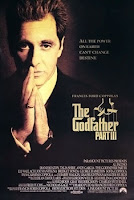 I’m going to jump right in and say that Men in Black III is much better than it ought to be, although it’s
still a long way from being the best MIB flick in the trilogy (I’d have to go
back and reassess the first two, though I’m reasonably certain the first is
still king).
I’m going to jump right in and say that Men in Black III is much better than it ought to be, although it’s
still a long way from being the best MIB flick in the trilogy (I’d have to go
back and reassess the first two, though I’m reasonably certain the first is
still king).In this third MIB film, the “aliens among us” premise is mostly jettisoned in favor of a more character-driven exploration of the relationship between Agent J (Will Smith) and his gruff senior partner Agent K (Tommy Lee Jones). After the nefarious Boris the Animal (Jemaine Clement) escapes from a lunar prison and time-travels to murder K, J – the only one who remembers his partner – timejumps back to 1969 and pairs with a young K (a pitch-perfect Josh Brolin) to prevent Boris’s plan from succeeding.
When the threequel was announced, I remember rolling my eyes with some skepticism at the apparent lack of originality running through Hollywood that they would dust off a property more than a decade older. But thanks to my recent addiction to Doctor Who and Grant Morrison comics, the time travel conceit sounded promising. And after being oh so wrong about a certain casting choice in a certain blockbuster Batman film, I’ve adopted a “cautiously optimistic” stance toward most Hollywood ventures.
“Cautious optimism” pays off here, because Men in Black III is entertaining and a good bit of light-hearted fun. Forgive the comparison, but it’s no Avengers in terms of summer blockbuster greats, but it’s better than most threequels (see this week’s “Monday at the Movies” feature for more) and takes the franchise in an intriguing new direction.
Although Will Smith’s performance seems a little dated, Josh Brolin ably steps in for Tommy Lee Jones and does a more than convincing job of playing the younger version (with a few “city miles” to account for the apparent lack of sufficient age discrepancy). Rather than a straight impersonation, Brolin is charged with creating a peppier Agent K, to boot, and it’s something he does successfully, creating a character that is at once familiar and unexpected. If for no other reason, then, the film is worth seeing for Brolin’s performance.
Also in the “good performances” catalog – Jemaine Clement, late of Flight of the Conchords, as antagonist Boris the Animal. After musical partner Bret McKenzie won an Oscar for his work on The Muppets, Clement also takes the comedy route but dials up the menace significantly. Gratefully, Clement doesn’t turn Boris into a caricature of a villain but embraces the character’s nature and revels in it. Boris isn’t a villain we laugh at but rather can genuinely fear.
While the performances make the film worth the price of admission, I can’t help wishing the script was a little stronger. The script was apparently cobbled together from several drafts and left a bit unfinished; consequently, there are a few narrative plot threads that never quite come to fruition. Maybe I’m just reading too deeply into the movie, or maybe I’m falling for the alternate timelines which at least one character posits are in existence.. (And here it’ll be impossible to discuss the film without at least spoiling what doesn’t happen.)
The beginning of the film seems to intimate that K is dying; he’s more depressed than usual, even before he learns that Boris has escaped and is gunning for him. He’s clearly keeping a secret from J, although the alleged payoff doesn’t quite measure up to the teases we get (nor do we know why now of all times the secret is bothering him). Narrative problems surround K; we’re promised that we’ll learn why the happy-go-lucky K of the 60s transformed into the crotchety oldster we know and love, yet the continual hints of “It hasn’t happened yet” remain ephemeral evaporations at the end. It ultimately has nothing to do with Cape Canaveral, nor with his relationship with Agent O (another thread that never pays off) – at worst, the writers are teasing it for Men in Black IV, a sign of poor writing.
Worse, up until the last minute, it seems that the writers are going to kill J. Repeatedly he’s asked how far he’ll go to save K; we’re told that he’s “been there” before; the rules of time travel apparently stipulate that a death must be replaced by another death; and it’d make perfect sense for K to be bitter that his partner’s death saved his own life. Ultimately, though, the writers seem unwilling to pull the trigger (no pun intended) on J. The inclination to sustain the franchise is understandable, but copping out on the ending results in a film which signifies nothing.
But in the words of Captain Jack Sparrow, “It’s not the destination so much as the journey.” Men in Black III is a fun ride and a satisfactory summer popcorn flick, so long as there’s a bit of disbelief suspended.
Men in Black III is rated PG-13 for “sci-fi action violence, and brief suggestive content.” Aliens menace our heroes and each other; one shoots spikes out of his hand and impales several characters, while most others are vaporized in colorful bursts of energy. Boris has a weird henchwoman who’s wearing a slightly revealing outfit when she makes out with his elongated tongue, and police guards comment briefly on her attire.










